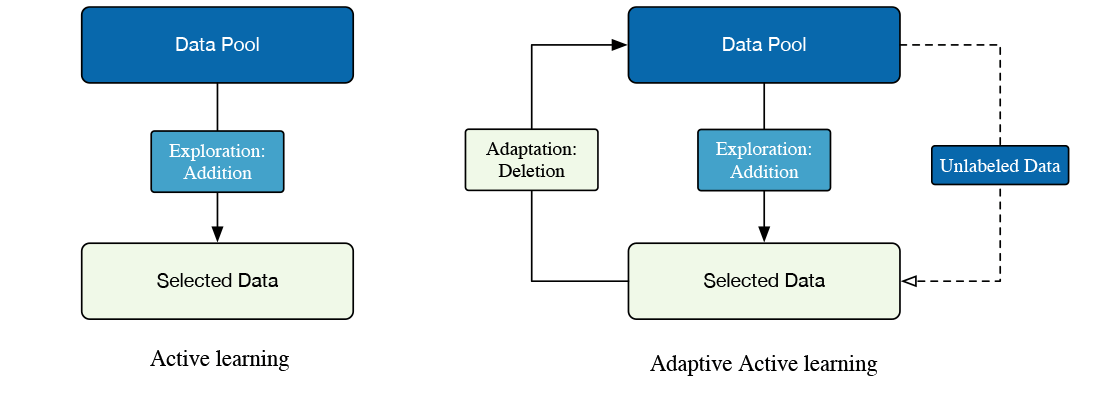
In this study, we identify the limitation of traditional training/testing split in specific use cases including drug screening. Alternatively, we investigated the potential of active learning on solving problems under unconventional train/test split protocols.
We further propose a new adaptive active learning architecture (AAL) which involves an adaptation policy, in comparison with the traditional active learning that only unidirectionally adds data points to the training pool. We primarily justify our points by extensively investigating an interdisciplinary drug-protein binding problem and convential machine learning benchmarks.